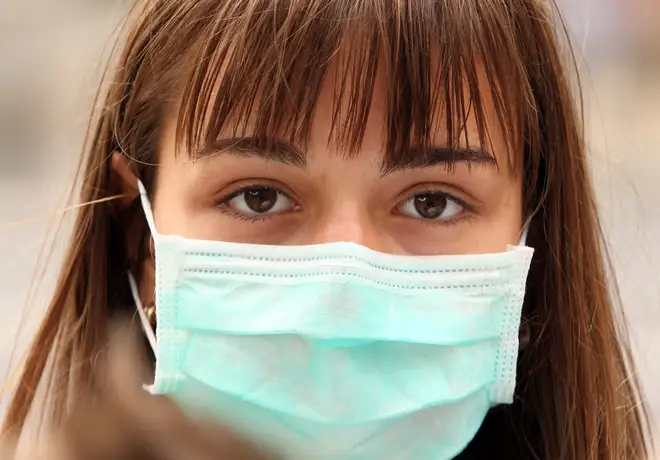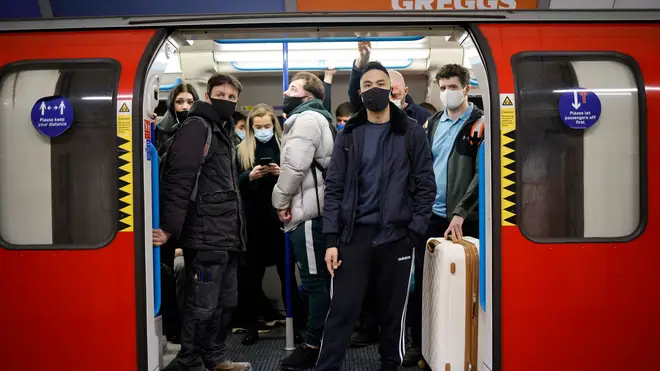
Ali Miraj 1pm - 4pm
17 May 2021, 09:26 | Updated: 29 November 2021, 19:22

Lockdown measures are easing across the UK today, with hugs, pubs and international travel all being cautiously allowed once more. But what are the latest rules for face masks?
This article is now out of date - please refer to this article for the latest rules.
Face coverings have been shown to be effective in reducing the spread of coronavirus droplets, which is a key way that the virus passes from person to person.
Most people will need to wear a mask in places where it is a requirement to do so.
However, there are some exceptions. For example, children under the age of 11, people who cannot wear or remove a face covering due to an illness or disability, people who would suffer severe distress from a face mask, or emergency service workers are all less likely to be able to wear face coverings.
The Government guidance advises respect in situations like this, and emphasises that the reason for the inability to wear a face mask might not be visible.
Read more: Pubs welcome punters back indoors for first time in months
Currently in England you must wear a face covering in most indoor public places, including:
The Government advice says that you should also wear a face covering in any indoor place where social distancing might be difficult.
You are allowed to remove your mask in some situations, for example if asked to for identification or in order to take medication.

"How do you go to the pub with caution?"
As of May 17, staff and students in schools and further education in England are no longer legally required to wear masks in education settings.
The Government still says that staff and students should wear masks in areas outside the classroom where social distancing is not possible, but this is just a recommendation.
The rules have also changed to account for the places that reopened on May 17.
For example, indoor visitor attractions such as theatres and museums have opened again, but you must wear a mask.
Similarly, as hotels and hostels open up once more, the requirement to wear a mask in communal areas has also been introduced.
Read more: Boris Johnson calls for a 'heavy dose of caution' as lockdown is eased
If people do not comply with the rules surrounding face coverings and do not have a valid reason, the police are able to take measures such as fines of £200, which will double each time for repeat offenders.
Transport officers can refuse to allow people on trains and buses, or instruct them to wear a face covering.

The government advises using a face covering with several layers, that fits securely on the face, and is made out of a breathable material.
When you wear one, it must cover your nose and mouth, and you should try to avoid touching the part that is in contact with your face.
You should wash or sanitise your hands before removing it, and, unless you’re using disposable ones, you must wash your mask regularly.